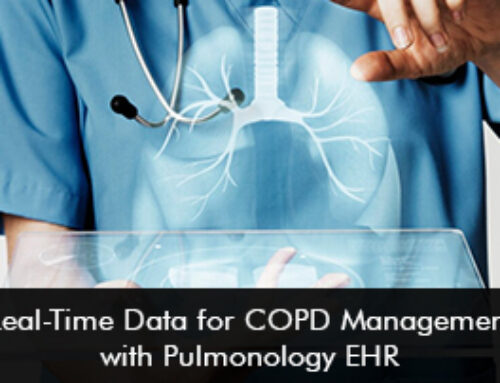Oncology care and practices have distinctive challenges and require an Electronic Medical Records (EMR) Software System that can meet these unique and complex requirements. Oncologists must work with other medical specialists such as pathologists and radiologists to offer comprehensive care to cancer patients. Thus it is critical to deploy an Oncology EMR Software that offers robust interoperability for seamless care coordination to offer the best treatment.
What is an Oncology EHR Software System?
Oncology Electronic Medical Records (EMR) software is a specialized digital system built for managing and organizing patient information in oncology offices and cancer treatment centers. These software platforms are specifically designed to fulfill the demands of oncologists and other cancer-care providers.
Common Features Present in an Oncology EMR Software
The following are some essential characteristics and features of oncology electronic medical records software empowering oncologists to improve patient care:
- Patient Records Management
- Treatment Planning
- Decision Support Tools
- Chemotherapy Management
- Symptom Management
- Radiation Therapy Integration
- Imaging Integration
- Billing and Coding
- Clinical Documentation (Oncology-specific templates)
- Interoperability
- Research and Reporting Functions
- HIPAA-compliance Certification
- Mobile Access
- Intuitive Patient Portal Software
Top 3 Features Oncologists Require in Oncology EHR System
A survey by the Association of Community Cancer Centers was conducted to find out the critical features that are important for oncology practices to deliver high-quality patient care. The association interviewed oncologists to find out these tools and they were as follows by their preference:
- Seamless care coordination among several subspecialties in the oncology field
- Symptom Management
- Screening Services
How Does Implementing Oncology EMR Software Help Oncology Practices?
Oncology practices can profit greatly from the implementation of Oncology EHR Software. First off, centralizing patient data expedites workflow efficiency and makes full medical records, treatment plans, and diagnostic tests easily accessible. Better coordination between multidisciplinary care teams is made possible by this, and patient outcomes and care are enhanced.
Furthermore, oncology EMR software improves treatment accuracy and safety. The software offers decision support capabilities for tailored treatment planning, chemotherapy dose calculations, and monitoring for potential drug interactions or contraindications. This can improve both patient safety and health outcomes.
Billing and coding are two administrative procedures that are automated by the Oncology Software System. This minimizes errors and cuts down on paperwork. Thus maximizing practice income and running effectiveness.
The Best Oncology EHR Software Systems in 2024
Empowered oncologists can help deliver quality patient care which is made possible by the following Oncology EMR Software Solutions. These systems are intuitive and have powerful functionalities, with reliable customer support taking oncology practices to the next level:







